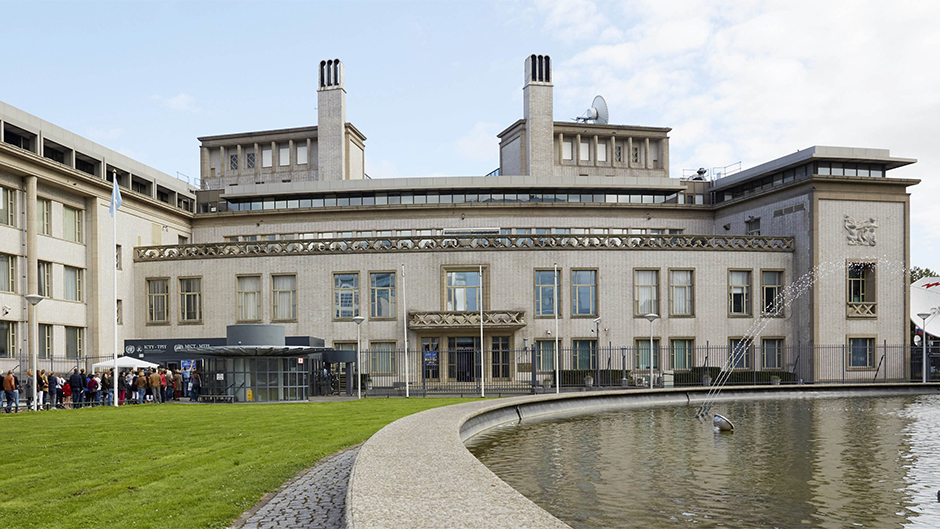
30.11.2016.
UN States Urged to Arrest Wanted Serbian Radicals
USA, war criminals
The Hague Tribunal has made public an international arrest warrant for three Serbian Radical Party politicians wanted for witness intimidation, calling on UN member states to detain them if possible.
The International Criminal Tribunal for the Former Yugoslavia, ICTY on Tuesday lifted the confidentiality of the international arrest warrants for three Serbian Radical Party members, Vjerica Radeta, Petar Jojic and Jovo Ostojic, who are accused of witness intimidation during the war crimes trial of their leader Vojislav Seselj.
The international arrest warrants and orders for surrender were issued on October 5 by the ICTY.
“Considering that issuing an international arrest warrant may contribute to ensuring that the course of justice is not further obstructed; hereby [the ICTY] directs the authorities and all officers and agents of all United Nations Member States… to act promptly with all due diligence to secure the arrest, detention, and transfer [them] to the Tribunal,” the arrest warrants say.
The ICTY first called for Serbia to arrest of the three members of the hardline nationalist party in January, but since then Belgrade has been refusing to extradite them to the Hague-based court.
Contrary to its previous decisions in similar cases, the Higher Court in Belgrade ruled in May this year that the three politicians could not be arrested and transferred to The Hague for trial because that would not be in line with the Serbian law on cooperation with the UN-backed war crimes court.
The Serbian government also refused to act on the arrest warrant, citing security reasons and suggesting that detaining them would cause unrest in the country.
“The arrest warrant for the three people came after Seselj was temporarily released [for cancer treatment in November 2014]. It was estimated by the government that their arrest could endanger stability in the country,” said Sasa Obradovic, the Serbian government envoy for the cooperation with the Hague Tribunal.
Radeta, Ostojic and Jojic are accused of being in contempt of court for threatening witnesses at Seselj’s trial, and for blackmailing protected witnesses and offering them bribes of 500 euros not to testify.
Some observers suspect that the reasons for not extraditing the Radicals are political, claiming that allegations that Serbian Prime Minister Aleksandar Vucic – who was once Seselj’s right-hand man – was involved in interfering with witnesses might be revealed if the case goes to trial.
The alleged witness tampering took place during Seselj’s war crimes trial at the ICTY, when Vucic worked as a legal associate on the defence team from 2004 to 2008.
The arrest warrant said that a witness identified only as Witness 4 was asked to meet Vucic and Zoran Krasic, another legal associate on Seselj’s defence team at the time.
Witness 4 later informed the prosecution that “he would not testify due to the significant pressure that had been exerted upon him”. BIRN could not verify whether the meeting took place or not.
Since February this year, the ICTY has continued to insist on the extradition of the three Radicals and has criticised Serbia at the UN Security Council for not cooperating with the Hague court, accusing the country of obstructing justice.
The Serbian team for cooperation with the ICTY insists meanwhile that it has done everything in line with the law and that as far as it is concerned, the matter is closed.
It also cited the example of former ICTY spokesperson Florence Hartmann, who was convicted of contempt of court in The Hague, but her home country France refused to extradite her.
Previously, any non-cooperation with the Hague Tribunal has had an impact on Serbia’s EU integration path as the country’s negotiations with Brussels have been halted on several occasions until full compliance has been achieved.
Cooperation with the ICTY is one of the EU’s key demands in Serbia’s recently-opened negotiations on Chapter 23 of European legislation, which deals with the rule of law.
Its recent non-compliance over the three Radicals has not yet been officially flagged up as an issue by the EU, but was raised in Serbia’s latest EU progress report.
Seselj was acquitted of wartime crimes in Croatia, Bosnia and Serbia by the ICTY earlier this year, but the case has now gone to appeal.
Meanwhile, he and his three wanted party allies remain active in political life in Serbia.
Seselj and Radeta have been members of the Serbian parliament since elections in April, while the Radical Party chief has also announced he will run for the presidency in 2017.
(Published on Balkaninsight 30. 11. 2016.)














